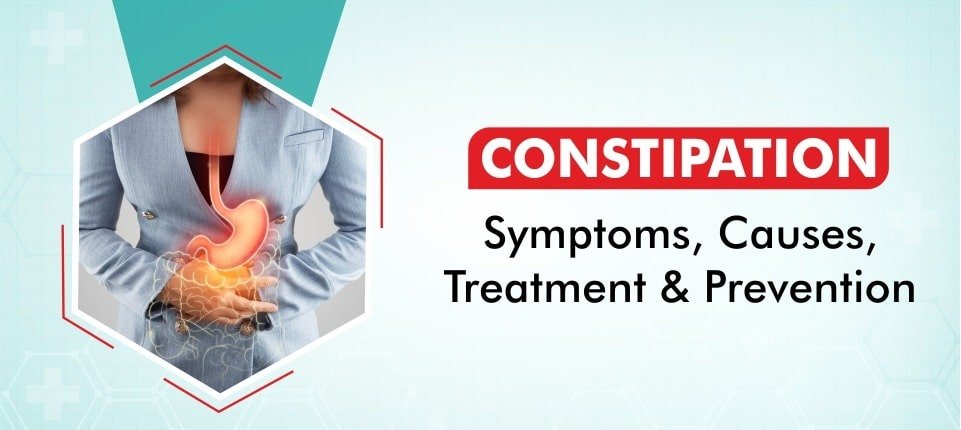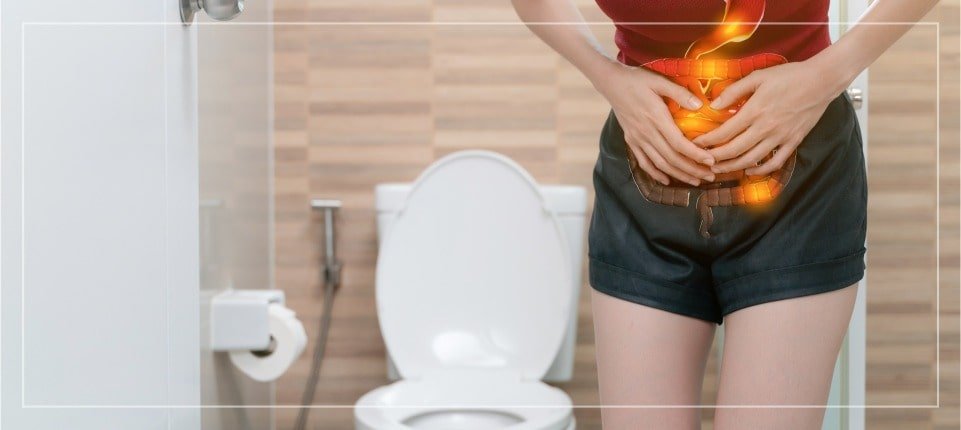

Ah, dreaded constipation! Almost everyone has experienced it once or more in their lifetime. And we can guarantee no one has fond memories of it. As per a survey, around 22% of Indian adults suffer from constipation. That’s a lot if you think about it! Not just adults, constipation is a common problem that affects people of all ages, including babies, children and the elderly. It’s mostly caused by a lack of fibre in your diet and can be treated with laxatives or dietary changes.Read on to learn more about what are the causes of constipation, its symptoms, and how to treat constipation.
Constipation is a gastrointestinal disorder. Typically, constipation is the condition of having one or more bowel movements less than three times a week. It is pretty common, though – It can trouble adults and is especially common in children and senior citizens.
When someone’s constipated, they have dry, hard and irregular bowel movements. Plus, they find it difficult to pass stool. A worse situation might include severe pain, gas, stomach discomfort or blood in the stools.
That’s to say that occasional constipation is rarely serious. However, if someone’s struggling with persistent constipation (usually lasting more than three weeks), they must consult a Gastro Doctor right away.

Some of the most evident constipation symptoms are as follows:
There are various factors that may cause constipation. Some of the most common causes of constipation include:
Ageing, pregnancy, posture (sitting for long periods), and illness are other causes of constipation. Various health-related issues that may cause constipation include:
There are several ways to treat constipation. Nonetheless, as they say: Prevention is always better than cure. Most people can relieve their symptoms or prevent constipation with changes to their diet and lifestyle.
Some of the ways to prevent or get relief from it are listed below:
If you follow these easy steps, you will likely have a healthier gut that will allow your body to absorb nutrients efficiently from food.
However, if you have symptoms that do not go away with self-care measures, there are several other treatment methods.
Your doctor may prescribe medications to treat constipation. If you have constipation that has lasted more than two weeks, you can start taking a laxative ( with a doctor’s prescription, of course!) that is over-the-counter (OTC).
Your doctor may prescribe something stronger if this doesn’t work after several days of treatment with OTCs—this should only happen in rare cases where there is another cause of constipation not related directly. Laxatives might include:
However, if your symptoms do not go away or become worse, you can get advice on other treatment options from a Gastro Doctor.
Other options that can help treat constipation are:
Chronic constipation can lead to various complications. Some of these include:
Moreover, this gastro condition can cause rectal ulcers and colon or rectal cancer. And often overlooked, it does have a considerable negative effect on the patient’s mental health.
As you might observe, constipation is a common problem that can be easily cured and prevented. It is generally caused by not getting enough fibre, drinking too much alcohol or caffeine, being stressed or having a low fluid intake.
Nevertheless, ignoring its signs and letting it persist will do more harm than good. Getting in touch with a Gastro Doctor is an ideal option in such cases. In case you are on the lookout for constipation treatment, Amandeep Hospital has some of the Best Gastrologist in India. Our Department of Gastroenterology & Nutrition is jam-packed with the latest facilities to treat even the most complex ailments related to the digestive system, pancreas, liver, etc.
A highly trained team of Surgeons and Doctors offer apt diagnosis and treatment for chronic constipation, fatty liver, gastritis, obesity, alcohol dependence, and much more.
Give your gut a gift of health. Speak with one of our representatives, visit our hospital or book an appointment today!
May 6, 2024
April 29, 2024